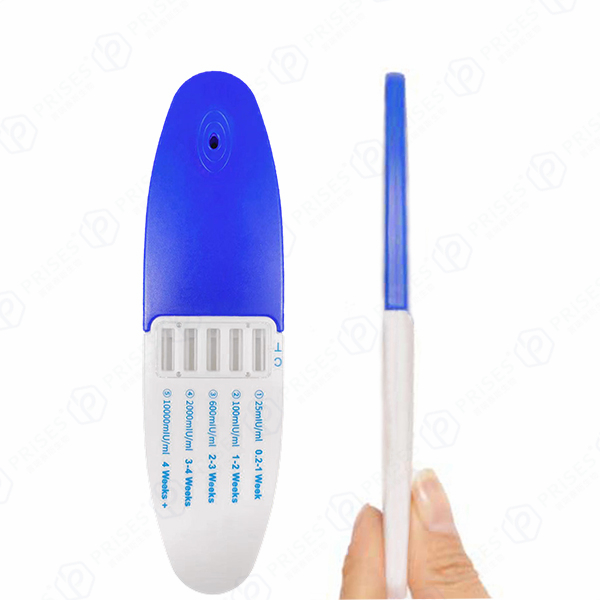නොවැ. . 23, 2024 20:27 Back to list
Testing for H. Pylori in Stool Samples Across China
Understanding the China H. Pylori Stool Test A Comprehensive Overview
The discovery of Helicobacter pylori (H. pylori) in the late 20th century transformed our understanding of gastrointestinal health. This spiral-shaped bacterium is well-known for its role in chronic gastritis and peptic ulcers, and it has been implicated in stomach cancer. As a result, accurate and efficient testing methods have become essential in diagnosing infections caused by H. pylori. One such method gaining traction in China is the H. pylori stool test, which offers several advantages over traditional testing methods.
What is H. Pylori?
H. pylori is a type of bacteria that resides in the stomach lining and is uniquely adapted to survive the acidic environment of the gastric mucosa. Infection with H. pylori is prevalent worldwide, and studies indicate that a significant portion of the global population carries this bacterium. While many people with H. pylori do not exhibit symptoms, some may experience discomfort, including bloating, nausea, and abdominal pain, especially in the presence of ulcers.
The Importance of Testing
Accurate diagnosis is critical for effective treatment. Traditional methods of testing for H. pylori include blood serology, endoscopy with biopsy, and urea breath tests. While these methods are valid, they can be invasive or uncomfortable. This is where the stool test presents a less invasive alternative.
The H. Pylori Stool Test
The H. pylori stool test, also known as the fecal antigen test, identifies the presence of H. pylori antigens in a person’s stool sample. This test is not only non-invasive but also easier to administer, making it particularly suitable for patients, including children.
One of the prominent advantages of the H. pylori stool test is its high sensitivity and specificity. Research has demonstrated that this test can effectively detect H. pylori infection with a high degree of accuracy, which aids clinicians in making informed decisions about treatment. Furthermore, the stool test is beneficial for monitoring treatment outcomes. After therapy, patients can be re-tested to confirm eradication of the bacteria.
china h pylori stool test

The Testing Process
The process for the H. pylori stool test is straightforward. Patients are typically asked to provide a stool sample that can be collected at home and sent to a laboratory for analysis. It is essential to follow any pre-test instructions, which may include avoiding certain medications or foods that could interfere with the results.
Once the sample is received at the laboratory, it undergoes a series of analyses to detect H. pylori antigens. The results are usually available within a few days, allowing patients to receive prompt feedback about their health.
Implications of Test Results
A positive result indicates an active H. pylori infection, warranting further evaluation and treatment, which often includes a combination of antibiotics and acid-reducing medications. On the other hand, a negative result suggests that H. pylori infection is unlikely, which can relieve concerns for many patients experiencing gastrointestinal symptoms.
Conclusion
The H. pylori stool test represents a significant advancement in the diagnosis and management of H. pylori-related disorders, particularly within the context of Chinese healthcare. Its non-invasive nature and reliability make it an appealing option for patients and clinicians alike. As awareness of H. pylori’s impact on health continues to grow, the stool test could play a pivotal role in improving outcomes for those affected by this common yet concerning pathogen.
In summary, the evolution of diagnostic technologies like the H. pylori stool test exemplifies the ongoing efforts to enhance patient care and promote better health outcomes in the face of gastrointestinal diseases. As more patients and healthcare providers recognize the value of this test, it is poised to become a cornerstone of H. pylori diagnosis in the healthcare landscape of China and beyond.
-
Rapid BZO Test Kit - Fast & Accurate Benzodiazepines Detection
NewsAug.04,2025
-
China Nylon Flocking Swabs - AI Enhanced Quality Collectors
NewsAug.03,2025
-
Highly Accurate hCG Pregnancy Test Strips - 5 Min Results
NewsAug.02,2025
-
Premium Empty ABS Plastic Cassettes: Durable & Lightweight Storage
NewsAug.01,2025
-
Accurate Cocaine (Coc) Rapid Test Kit | Fast & Reliable Detection
NewsJul.31,2025
-
Accurate HCG Pregnancy Test Strips | Fast Home Use Kit
NewsJul.31,2025

